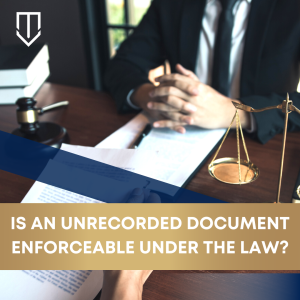 The purpose of this article is to explain what a bona fide purchaser for value is and how that status impacts someone’s property rights. A bona fide purchaser for value (or bona fide purchaser) is someone who acquires a property interest or encumbrance like a property, mortgage, or lease, and meets two specific criteria. A bona fide purchaser must (1) lack knowledge or notice that a prior claim exists on the property and (2) give adequate consideration for that property. (Melendrez v. D & I Inv., Inc., (2005) 127 Cal. App. 4th 1238, 1251.)
The purpose of this article is to explain what a bona fide purchaser for value is and how that status impacts someone’s property rights. A bona fide purchaser for value (or bona fide purchaser) is someone who acquires a property interest or encumbrance like a property, mortgage, or lease, and meets two specific criteria. A bona fide purchaser must (1) lack knowledge or notice that a prior claim exists on the property and (2) give adequate consideration for that property. (Melendrez v. D & I Inv., Inc., (2005) 127 Cal. App. 4th 1238, 1251.)
Why is the lack of knowledge of a prior claim necessary?
A bona fide purchaser cannot have any knowledge of any prior claims. This is because their purchase makes any unrecorded interest, like the verbal sale of a property, void. (Civ. Code § 1214.) To make sure they have no knowledge of other claims, a bona fide purchaser must make a reasonable inquiry to see if anyone else has a claim to the property. Buyers can do this by hiring a company to conduct a title search. A title search examines public records to determine who legally owns a property. Having this search done ensures there are no defects in the seller’s ability to transfer the property or other competing claims. Someone’s purchaser status is determined at the time the interest or lien is acquired. So, once that person has bought the property, the need for the buyer to not know of any competing claims ends. This is important because any information learned after acquiring the interest does not affect someone’s status as a bona fide purchaser or encumbrancer.
 California Partition Law Blog
California Partition Law Blog


 Sometimes, two or more persons claim to have an interest in the same piece of property. If these interests conflict, then the courts have to step in to adjudicate the dispute and decide whose title is true. But things can get messy when both parties appear to have valid deeds, free or forgery, or other impropriety.
Sometimes, two or more persons claim to have an interest in the same piece of property. If these interests conflict, then the courts have to step in to adjudicate the dispute and decide whose title is true. But things can get messy when both parties appear to have valid deeds, free or forgery, or other impropriety.